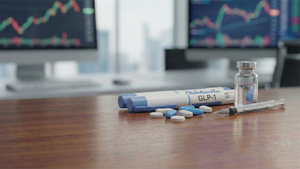Financial News
Chevron Publishes Methane Report
Company’s methane intensity has reduced more than 50% since 2016
Chevron Corporation (NYSE: CVX) today published a methane report that builds on Chevron’s ongoing efforts to promote transparency on climate-related matters. This report details information on Chevron’s approach to detecting, measuring and reducing methane intensity. Since 2016, Chevron has reduced the company’s methane intensity by 50 percent. Chevron’s U.S. upstream methane intensity is 85 percent lower than the U.S. upstream production sector average as of 2020.
“Our strategy is clear – leverage our strengths to safely deliver lower carbon energy to a growing world. Effective methane management is important for lower carbon intensity oil and gas production,” said Balaji Krishnamurthy, corporate vice president of Strategy and Sustainability. “Chevron’s ambition is to be a global leader in methane emissions performance. Our goal is simple – keep methane in the pipe.”
Chevron is taking action to meet that aim through reducing methane intensity, improving methane detection and advancing measurement. In particular, we aim to design and operate facilities to help prevent methane emissions and deploy technologies to validate performance, inform repairs and improve inventories.
In the Permian Basin, as part of the standard design, we include vapor recovery units for tank batteries and compressor stations. Since 2011, we have included compressed air for pneumatic controllers to eliminate methane emissions from that source. In addition, we have committed to designing, where possible, all new upstream facilities to operate without routine methane emissions.
Chevron is testing emerging technology and incorporating innovative solutions into our methane management programs. We are working toward integrating comprehensive direct measurement into existing emission factor-based inventories as protocols are developed and technologies become more widely available to improve methane detection at both the site and source levels. Since 2016, we have tested 13 advanced detection and measurement technologies. The full Methane Report is available here.
This report includes information that addresses a stockholder proposal requesting Chevron to report on the reliability of methane emissions disclosures, a proposal the Board of Directors recommended stockholders support, and which passed at the company’s 2022 Annual Stockholders Meeting in May.
Chevron is one of the world’s leading integrated energy companies. We believe affordable, reliable and ever-cleaner energy is essential to achieving a more prosperous and sustainable world. Chevron produces crude oil and natural gas; manufactures transportation fuels, lubricants, petrochemicals and additives; and develops technologies that enhance our business and the industry. We are focused on lowering the carbon intensity in our operations and growing lower carbon businesses along with our traditional business lines. More information about Chevron is available at www.chevron.com.
CAUTIONARY STATEMENTS RELEVANT TO FORWARD-LOOKING INFORMATION FOR THE PURPOSE OF “SAFE HARBOR” PROVISIONS OF THE PRIVATE SECURITIES LITIGATION REFORM ACT OF 1995
This news release contains forward-looking statements relating to Chevron’s operations and energy transition plans that are based on management's current expectations, estimates and projections about the petroleum, chemicals and other energy-related industries. Words or phrases such as “anticipates,” “expects,” “intends,” “plans,” “targets,” “advances,” “commits,” “drives,” “aims,” “forecasts,” “projects,” “believes,” “approaches,” “seeks,” “schedules,” “estimates,” “positions,” “pursues,” “may,” “can,” “could,” “should,” “will,” “budgets,” “outlook,” “trends,” “guidance,” “focus,” “on track,” “goals,” “objectives,” “strategies,” “opportunities,” “poised,” “potential,” “ambitions,” “aspires” and similar expressions are intended to identify such forward-looking statements. These statements are not guarantees of future performance and are subject to certain risks, uncertainties and other factors, many of which are beyond the company’s control and are difficult to predict. Therefore, actual outcomes and results may differ materially from what is expressed or forecasted in such forward-looking statements. The reader should not place undue reliance on these forward-looking statements, which speak only as of the date of this news release. Unless legally required, Chevron undertakes no obligation to update publicly any forward-looking statements, whether as a result of new information, future events or otherwise.
Among the important factors that could cause actual results to differ materially from those in the forward-looking statements are: changing crude oil and natural gas prices and demand for the company’s products, and production curtailments due to market conditions; crude oil production quotas or other actions that might be imposed by the Organization of Petroleum Exporting Countries and other producing countries; technological advancements; changes to government policies in the countries in which the company operates; public health crises, such as pandemics (including coronavirus (COVID-19)) and epidemics, and any related government policies and actions; disruptions in the company’s global supply chain, including supply chain constraints and escalation of the cost of goods and services; changing economic, regulatory and political environments in the various countries in which the company operates; general domestic and international economic and political conditions, including the military conflict between Russia and Ukraine and the global response to such conflict; changing refining, marketing and chemicals margins; actions of competitors or regulators; timing of exploration expenses; timing of crude oil liftings; the competitiveness of alternate-energy sources or product substitutes; development of large carbon capture and offset markets; the results of operations and financial condition of the company’s suppliers, vendors, partners and equity affiliates, particularly during the COVID-19 pandemic; the inability or failure of the company’s joint-venture partners to fund their share of operations and development activities; the potential failure to achieve expected net production from existing and future crude oil and natural gas development projects; potential delays in the development, construction or start-up of planned projects; the potential disruption or interruption of the company’s operations due to war, accidents, political events, civil unrest, severe weather, cyber threats, terrorist acts, or other natural or human causes beyond the company’s control; the potential liability for remedial actions or assessments under existing or future environmental regulations and litigation; significant operational, investment or product changes undertaken or required by existing or future environmental statutes and regulations, including international agreements and national or regional legislation and regulatory measures to limit or reduce greenhouse gas emissions; the potential liability resulting from pending or future litigation; the company’s future acquisitions or dispositions of assets or shares or the delay or failure of such transactions to close based on required closing conditions; the potential for gains and losses from asset dispositions or impairments; government mandated sales, divestitures, recapitalizations, taxes and tax audits, tariffs, sanctions, changes in fiscal terms or restrictions on scope of company operations; foreign currency movements compared with the U.S. dollar; material reductions in corporate liquidity and access to debt markets; the receipt of required Board authorizations to implement capital allocation strategies, including future stock repurchase programs and dividend payments; the effects of changed accounting rules under generally accepted accounting principles promulgated by rule-setting bodies; the company’s ability to identify and mitigate the risks and hazards inherent in operating in the global energy industry; and the factors set forth under the heading “Risk Factors” on pages 20 through 25 of the company’s 2021 Annual Report on Form 10-K and in subsequent filings with the U.S. Securities and Exchange Commission. Other unpredictable or unknown factors not discussed in this news release could also have material adverse effects on forward-looking statements.
View source version on businesswire.com: https://www.businesswire.com/news/home/20221025005640/en/
Contacts
Deena McMullen
(432) 363-7085
More News
View More




Recent Quotes
View MoreQuotes delayed at least 20 minutes.
By accessing this page, you agree to the Privacy Policy and Terms Of Service.



